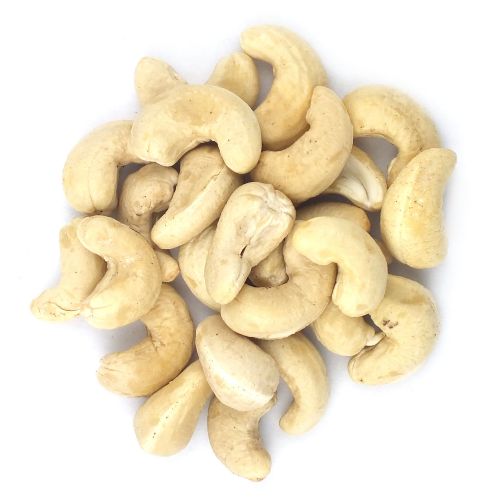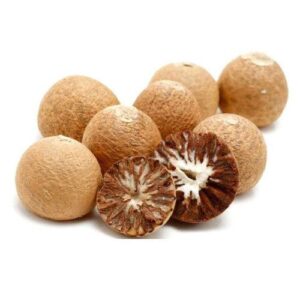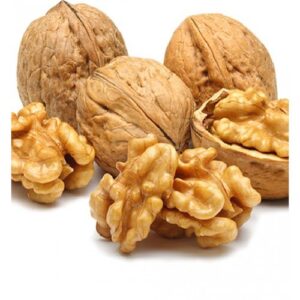Cashew nuts are a popular and versatile nut known for their rich, buttery flavor and smooth texture. They come from the cashew tree (Anacardium occidentale), which is native to Brazil but now widely cultivated in tropical regions around the world. Here’s a comprehensive overview of cashew nuts:
Characteristics:
- Appearance:
- Shape: Kidney-shaped with a curved form.
- Color: Typically light beige or cream-colored, although they can range from pale yellow to light brown depending on processing.
- Flavor and Texture:
- Taste: Creamy, mildly sweet, and nutty.
- Texture: Smooth and buttery, which makes them a popular ingredient in both savory and sweet dishes.
Nutritional Profile:
- Macronutrients:
- Protein: Good source of plant-based protein, essential for muscle repair and growth.
- Fats: Contains healthy monounsaturated and polyunsaturated fats, which support heart health. Relatively low in saturated fat.
- Carbohydrates: Provides a moderate amount of carbohydrates, including dietary fiber.
- Vitamins and Minerals:
- Vitamin E: An antioxidant that helps protect cells from damage.
- Vitamin K: Important for blood clotting and bone health.
- Magnesium: Supports muscle and nerve function, and bone health.
- Iron: Essential for oxygen transport in the blood.
- Zinc: Supports immune function and cellular repair.
- Antioxidants:
- Phytochemicals: Contains antioxidants like polyphenols that help reduce inflammation and oxidative stress.
Health Benefits:
- Heart Health:
- Healthy Fats: The monounsaturated and polyunsaturated fats in cashews can help lower bad cholesterol levels and support cardiovascular health.
- Bone Health:
- Magnesium and Calcium: Contribute to strong bones and teeth.
- Digestive Health:
- Fiber: Supports healthy digestion and can help prevent constipation.
- Immune Support:
- Vitamins and Minerals: Essential for maintaining a healthy immune system.
Culinary Uses:
- Snacking:
- Raw or Roasted: Can be eaten raw, roasted, or salted as a snack.
- Cooking and Baking:
- Dishes: Used in various dishes such as stir-fries, curries, and salads.
- Baking: Can be chopped and added to baked goods like cookies and cakes.
- Sauces and Butters:
- Cashew Butter: Blended into a smooth spread similar to peanut butter.
- Cashew Cream: Used as a dairy-free alternative in sauces and soups.
- Desserts:
- Creamy Desserts: Often used in vegan desserts and raw food recipes for a creamy texture, such as cashew-based cheesecakes and ice creams.
Storage:
- Raw Cashews:
- Refrigeration: Store in an airtight container in a cool, dry place. For longer storage, keep in the refrigerator or freezer to prevent spoilage and rancidity.
- Roasted Cashews:
- Storage: Similar to raw cashews, keep in an airtight container in a cool, dry place. They can last several months if stored properly.
Potential Concerns:
- Allergies:
- Considerations: Cashews are a common allergen. Individuals with nut allergies should avoid them.
- Caloric Content:
- Moderation: Cashews are calorie-dense, so consuming them in moderation is important, especially for those managing their weight.
Varieties:
- Raw Cashews: Unprocessed and have a natural, slightly sweet flavor.
- Roasted Cashews: Often roasted and salted for added flavor.
- Cashew Pieces: Smaller bits of cashews, commonly used in cooking and baking.
Keywords:
- Cashew Nuts
- Nutritional Benefits
- Healthy Fats
- Cashew Butter
- Heart Health
- Bone Health
- Digestive Health
- Culinary Uses
- Storage Tips
- Allergy Considerations




Reviews
There are no reviews yet.